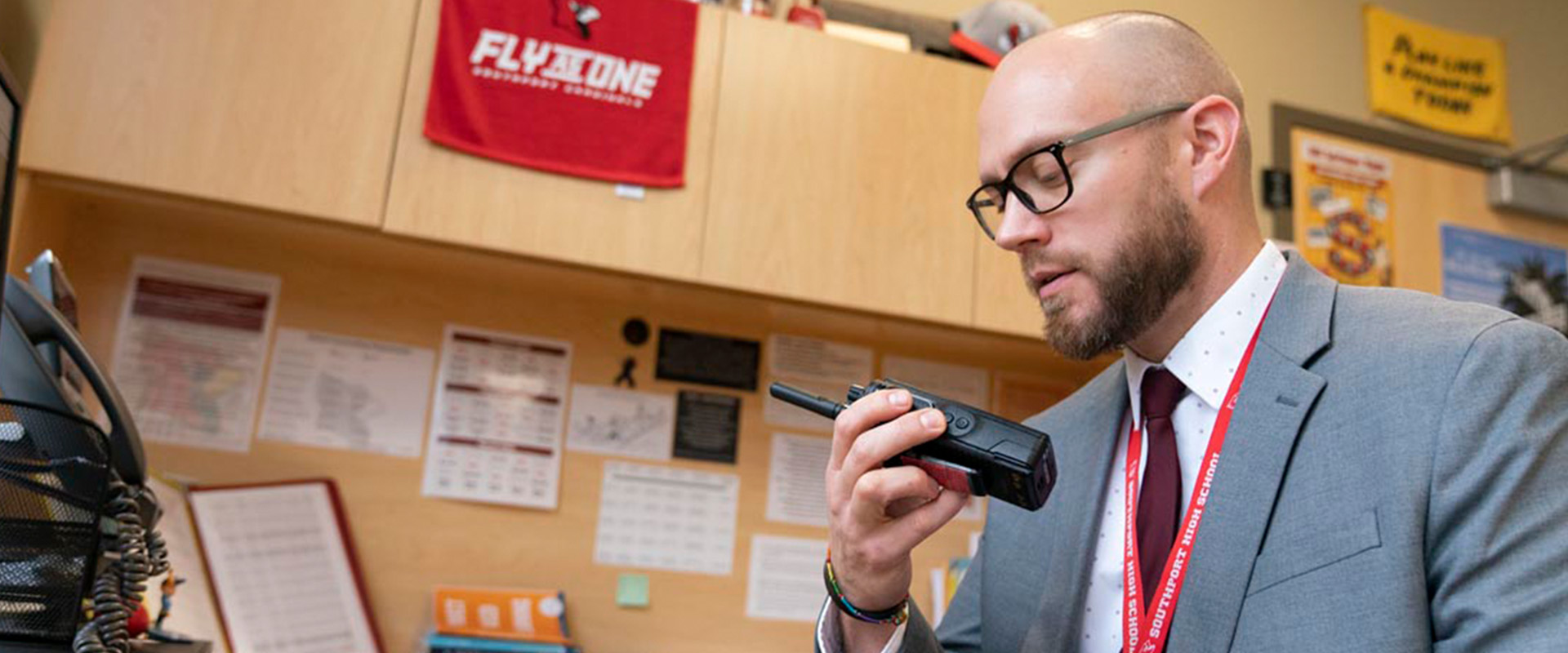Your company has just rolled out a brand-new fleet of two-way radios. Your team relies on them to coordinate shipments, keep the yard moving, and connect managers across multiple sites. Everything seems flawless—until interference strikes.
Suddenly, your conversations are crossed with chatter from another business, and critical instructions are drowned out. In some cases, public safety channels near you are even disrupted. Before long, the Federal Communications Commission (FCC) comes knocking with significant fines and penalties for operating radios without proper authorization.
This scenario is more common than many realize, and it highlights why the FCC takes two-way radio use seriously. Running communications equipment without the correct licensing is not only risky but can also shut down your operations at the worst possible moment.
Why an FCC License Exists
The airwaves are a shared resource. Without structure, signals would overlap, and chaos would spread across industries. The FCC’s role is to coordinate, manage and regulate the frequency spectrum so everyone—from construction crews to hospitals—can communicate without interference.
An FCC license ensures that your company is assigned the correct channels and that your equipment operates legally. The nightmare scenario above is precisely why FCC licensing exists: to prevent confusion, maintain safety, and protect businesses from legal consequences.
General FCC Licensing Requirements
So, what does it actually take to obtain approval? The process is designed to confirm that your organization qualifies for specific frequency or frequencies and that your equipment won’t cause interference in accordance with FCC rules. The FCC licensing requirements generally include:
- Submitting the proper FCC form that applies to your type of radio use
- Providing details about your organization, including whether you already hold an FCC business license
- Listing technical specifications for the equipment you intend to operate
- Paying the applicable fees for the services you’re requesting
- Filing the license renewal form when your authorization nears expiration
The process can look intimidating, especially if you’re new to radio systems, but the key is making sure all information is accurate before filing.
Who Needs to File for Licensing?
Not every radio requires a license, but many commercial and organizational users do. Any entity operating on frequencies that aren’t covered by general consumer exemptions must apply. That typically includes the following types of companies.
- Logistics and transportation companies
- Manufacturers with large-scale facilities
- Utility providers coordinating field crews
- Healthcare institutions that depend on reliable communication
- Schools and universities with security or operations teams
- Contractors who need dedicated frequencies on job sites
- Local governments and public safety organizations
If your organization relies on radios to keep people connected, chances are you’ll need to meet licensing standards.
Special Note on Two-Way Radios
Not all handheld radios are the same. Some consumer-grade models operate on unlicensed frequencies, but professional-grade equipment often requires an approved station or channel. For example, if you’re deploying a fleet of units across multiple sites, you’ll likely need to apply through the two-way radio FCC licensing system to ensure legal operation.
Businesses sometimes assume that because they purchased equipment from a supplier, it’s automatically a registered business radio. In reality, the responsibility falls on the end user to secure proper FCC authorization.
Don’t Overlook Renewal
An FCC license isn’t a one-and-done approval. Most are valid for a set number of years, after which a renewal is required. Missing a deadline can create major disruptions if your authorization lapses. The renewal process usually involves submitting another form, paying fees, and verifying that your usage hasn’t changed. FCC licenses remain valid for so many years that it’s easy to forget them. Staying on top of timelines is crucial for uninterrupted communication compliance.
Getting Help With the Process
The good news? You don’t have to navigate this alone. Professional support can make the difference between a smooth application and costly mistakes. Specialized radio services providers understand the paperwork, the filing steps, and the deadlines that come with licensing.
While some companies turn to dedicated FCC licensing services, there’s no need to go outside your trusted communications partner.
SJM Industrial Radio: Your One-Stop Licensing Partner
Founded in 1991, SJM Industrial Radio is a family-owned business, and we pride ourselves on creative custom solutions and personalized customer service for businesses and organizations in and around the Los Angeles area.
At SJM Industrial, we do more than sell, install, and service radios. We guide businesses through every step of the FCC licensing process. From choosing the right form to tracking license renewal schedules, our team ensures your company stays compliant. When you work with us, you don’t have to reach out to third-party FCC licensing services. We provide the same support in-house, alongside the radio services you already depend on. That means fewer vendors, fewer headaches, and more confidence in your communications.
Whether you’re applying for your first license, filing a renewal, or making changes to your system, SJM is here to help. With us, you’re not just buying equipment—you’re partnering with a team that understands the regulations and keeps your operation protected.
Ready to secure your FCC license without the stress? Contact SJM Industrial Radio today and let us handle the process for you. We’re your one-stop shop for radios, compliance, and reliable communication.

